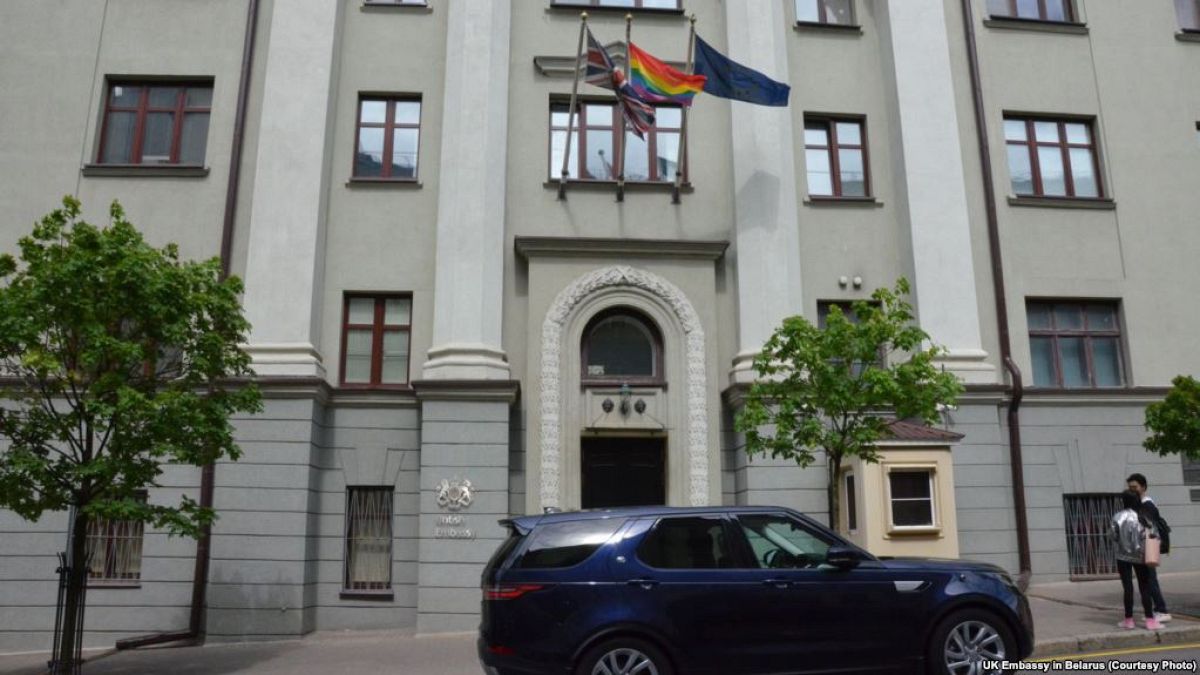Attitudes towards LGBT people have hardened in Belarus in recent years, human rights defenders say.
The Belarusian government has called same-sex relationships "fake" after blasting the UK embassy in Minsk for displaying a rainbow flag on the International Day Against Homophobia, Transphobia and Biphobia (IDAHOT).
In an official statement released on Sunday, the Belarusian interior ministry said "same-sex relationships are fake" and admonished the UK embassy in the country for displaying a rainbow flag on May 17 for IDAHOT.
"This day has never been and is not in any way memorable or significant in our country," the statement said.
"The reason is obvious: The overwhelming majority of Belarusians adhere to traditional family values, including Christian ones. A statement of this kind [by the British Embassy] is a challenge to these values."
"Say what you will, but single-sex relationships are a fake. The LGBT community and all this fight for 'their rights' and the community's day - it's all just fake!," it added.
The British embassy had displayed the rainbow flag between the Union Jack and the EU flag. It also released a video on social media criticizing the country’s authorities for its repressive stance towards LGBT people.
In the video, Ambassador Fiona Gibb congratulated an LGBT NGO for successfully registering following nine previous failed attempts before complaining that a recent gay culture festival had faced undue pressure.
Authorities prevented the festival from using a first venue that they said did not conform to fire safety regulations and found a second venue unsuitable after another last-minute surprise inspection, she said.
"It’s so pleasing to see that the authorities showed such concern for the safety of the festival’s participants," Gibb added sarcastically.
According to human rights group Amnesty International, attitudes towards LGBT people in some former Soviet states — Armenia, Belarus, Kazakhstan and Kyrgyzstan — have hardened in recent years under the impulsion of Russia.
In Belarus, the LGBT community and activists face discrimination and the threats of violence.
"The idea, promoted by Russia, that LGBTI rights are ‘western values’ that somehow constitute a threat to national security is entrenching elsewhere," the group said in a December 2017 report.
"All four countries have attempted to introduce homophobic "propaganda" laws, similar to the law in Russia. So far, only Belarus has done so, adopting a variation of the Russian law in 2016," it noted.
